Indigenous Artifacts Found in South Kingstown Park Delay Controversial Land Swap
December 6, 2022
WAKEFIELD, R.I. — An expansion plan by South County Health that includes a land swap with the town of South Kingstown and the paving of most of a park is on hold, largely because of an archaeological survey that revealed Native American artifacts on the property.
At just 7.2 acres, Town Farm Park is small, but it has generated a firestorm of controversy involving an influential regional hospital, municipal, state and federal governments, the Narragansett Indian Tribe, and a group of residents who oppose the land swap.
The property, on Commodore Oliver Hazard Perry Memorial Highway (Route 1), was donated to the town in 1871 by Thurston Robinson. Known as the “Town Poor Farm,” the parcel contained burial plots for impoverished residents. There were at least 20 graves in the cemetery when it was demolished in 1940.
In 1953, Town Farm Park was established as a neighborhood park.
In 1976, the town received a grant for the park under the federal Land and Water Conservation Fund Act of 1965, with the stipulation that the land be maintained in perpetuity as public recreation space. The grant, from the National Park Service, is administered in Rhode Island by the state Department of Environmental Management (DEM).
However, in 1983, in violation of the terms of the federal grant, a portion of the land comprising the upper ball field was sold to South County Hospital, which needed additional parking spaces.
In 2019, needing even more parking, the hospital submitted an institutional master plan to the town that included a proposed land swap. The hospital would get Town Farm Park and create about 144 new parking spaces, and in return, the town would receive a wooded 35-acre property on Glenn Rock Road.
South County Health did not respond to a request for comment.
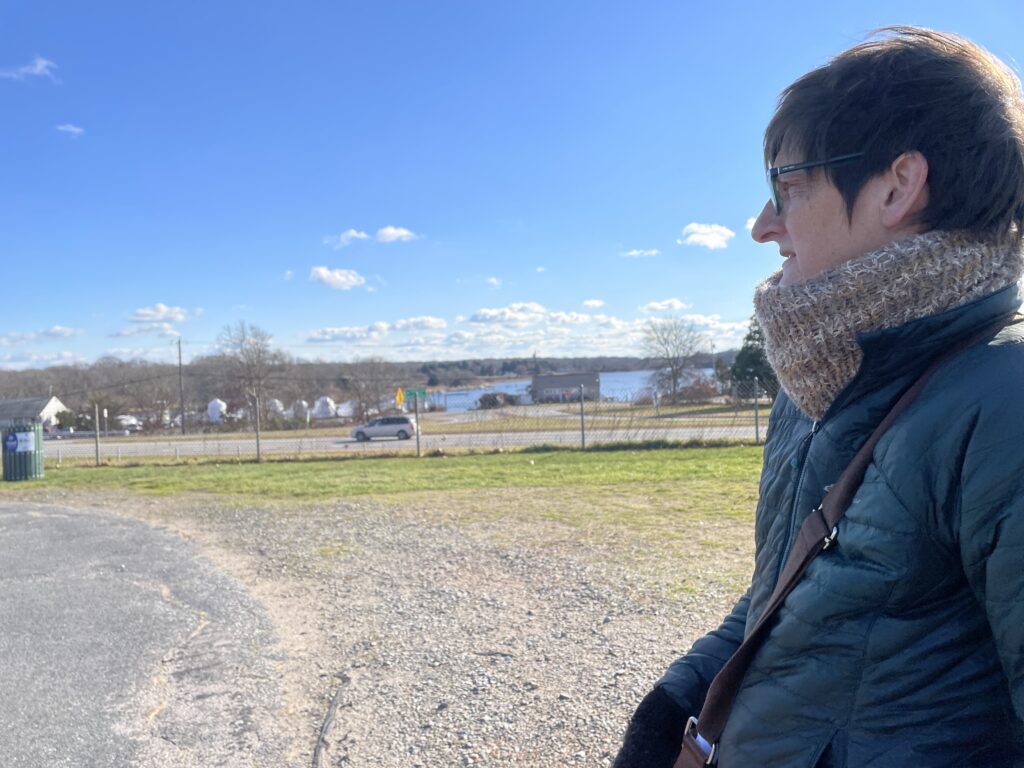
Lynne Harper, who lives on Kenyon Avenue across from the hospital and is a regular user of the park, learned there were other residents, including people living in the Glenn Rock Road area, who were opposed to the proposal. Harper created a website explaining the reasons for the group’s opposition and included a petition, which has more than 1,500 signatures.
Nevertheless, on Nov. 10, the South Kingstown Planning Board approved the proposed master plan. To pursue the land swap, an application had to be made to the National Park Service.
The board also imposed several conditions, which include:
Condition 3: “The Hospital, as part of any land use application for additional on-site parking, shall include alternative parking options.”
And Condition 5: “If the transfer of the Town Farm parcel occurs, the Hospital shall meet with the Planning Board to discuss the time frames for development on the Town Farm parcel and provide conceptual development plans for said property with proposed permitting and construction time frames within 6 months of the transfer of title to the property.”
In a strange twist, DEM data analyst Paul Jordan, who is responsible for the administration of the National Park Service grant, is also a member of the Planning Board. Jordan voted in favor of the hospital’s master plan, despite promising, in an Aug. 12, 2021 email to DEM Planning and Development chief Megan DiPrete and South Kingstown town planner Jamie Rabbitt, to recuse himself.
Jordan’s email states: “… should the hospital come before the Planning Board while the park conversion is undecided, I will recuse myself from any discussion or action the Board might take.”
Asked about his participation in the Planning Board vote, Jordan said, in a written comment emailed on Dec. 6, that he had not remembered his promise to DiPrete.
“The simple truth of the matter is that over a year had gone by between my sending the email saying I would recuse and the subsequent vote on the hospital’s institutional master plan,” he wrote. “In that time I completely forgot. It’s entirely on me.”
The members of Harper’s group, the “Friends of Town Farm Park,” were resigned to losing the park.
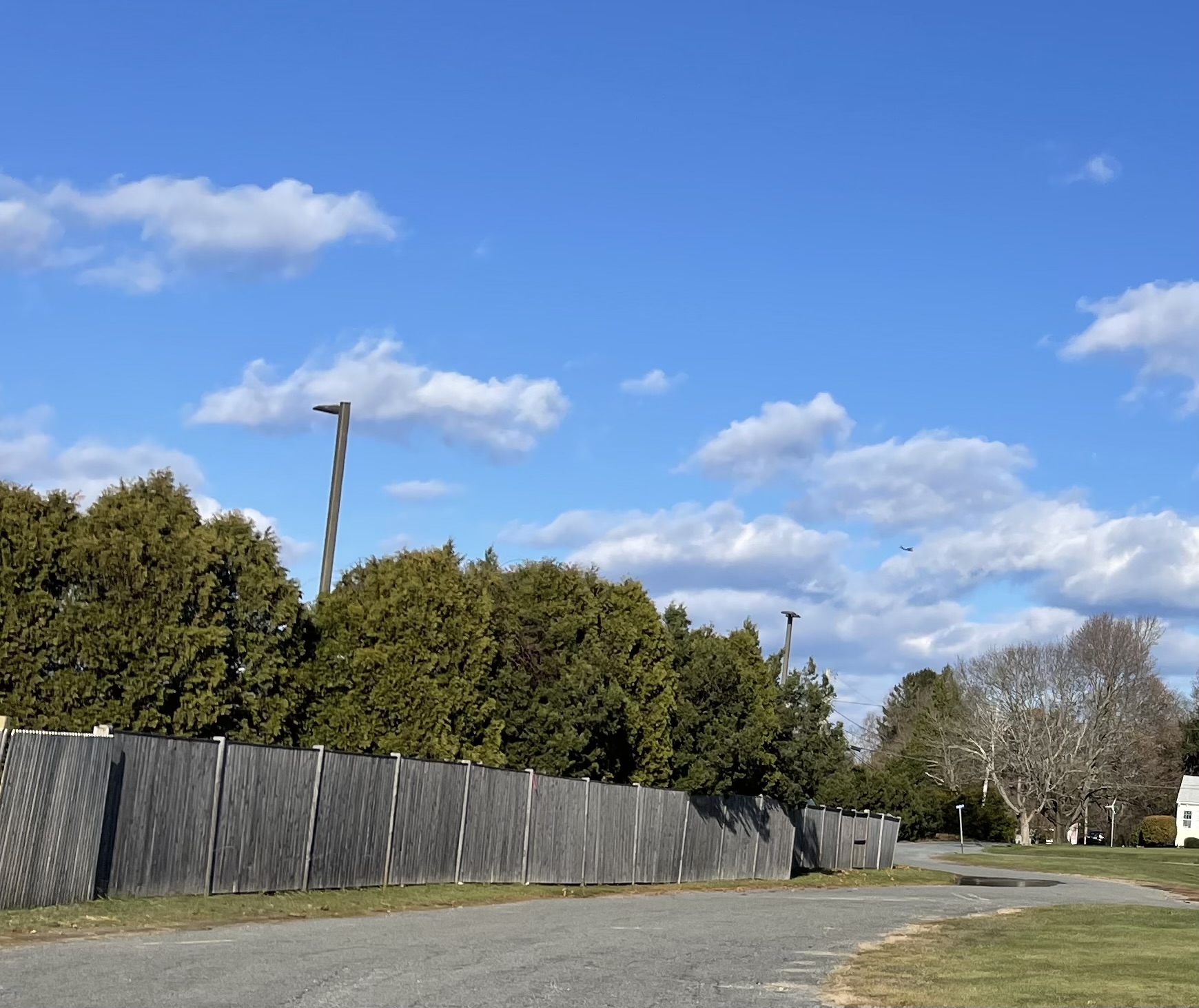
“Everything we’d heard in the neighborhood all along had been, ‘Oh, it’s a done deal. The hospital’s buying this from the town and giving them land somewhere else,'” Harper recalled. “And any time anyone tried to ask, again, since 2019, they were either shot down, misdirected told, ‘It’s all set. We’re working with the Indians.’ It was just difficult to really learn anything.”
Residents had several objections to the hospital’s proposal, all of which are stated in their position statement on the website:
The park property is of significant cultural and historical significance.
The proposal is inconsistent with the town’s comprehensive plan.
There had not been sufficient public consultation.
They questioned the wisdom of adding more impervious surface, in the form of a paved parking lot, so close to the head of Point Judith Pond, which is already considered to be an impaired waterway. They also asked why other parking options had not been explored.
But the residents’ concerns were drowned out by an aggressive public campaign by the hospital to garner support for the proposed plan.
A Nov. 23 email, which appears to have been sent to hospital clients, described the need for additional parking as critical to the hospital’s operation.
“Unless South County Health solves the parking capacity problem, healthcare in our community will suffer greatly,” president and CEO Aaron Robinson wrote.
But it was the findings of an archaeological survey, which were not released for more than a year, that prompted Town Council members to pause the project.
Required by the Rhode Island Historic Preservation and Heritage Commission (RIHPHC), the archaeological survey revealed the presence of artifacts that indicated the proposed parking lot expansion might impact Narragansett Indian burials.
The assessment, conducted by Gray and Pape Heritage Management, was recommended in October 2020 in a letter from the commission to South Kingstown’s director of planning at the time, Kaela Gray.
“The Cmdr. Oliver Hazard Perry Memorial Highway parcel is not considered to be historic,” state historic preservation officer J. Paul Loether wrote. “However, there are known archaeological sites and precontact burial sites in the vicinity of the parcel and we are concerned that there may be archaeological deposits and burials on this property, as well. The sale of the property has the potential to have an adverse effect on archaeological sites by opening it for development.”
Two years later, in an Oct. 5, 2022, letter to South Kingstown town manager James Manni, the state heritage commission’s interim executive director, Jeffrey Emidy, wrote the commission never heard back from the town regarding the survey and the commission‘s recommendations. Emidy reiterated that the survey had heightened concerns that graves might be present at the site, and that the property should be designated as a cemetery.
“In as much as RIHPHC considers it highly likely that Narragansett graves are present on this property, it must be considered a cemetery by the town, and afforded all the protections of the State cemetery laws [RIGL 23-18 et seq.],” the letter reads. “Under these laws, any future ground-disturbing activities undertaken on this land at any time in the future would require approval from the town under RIGL 23-18 et seq.”
Despite the state commission’s concerns, the Planning Board approved the hospital’s proposed master plan, including the land swap, with member Susan Axelrod casting the only nay vote.
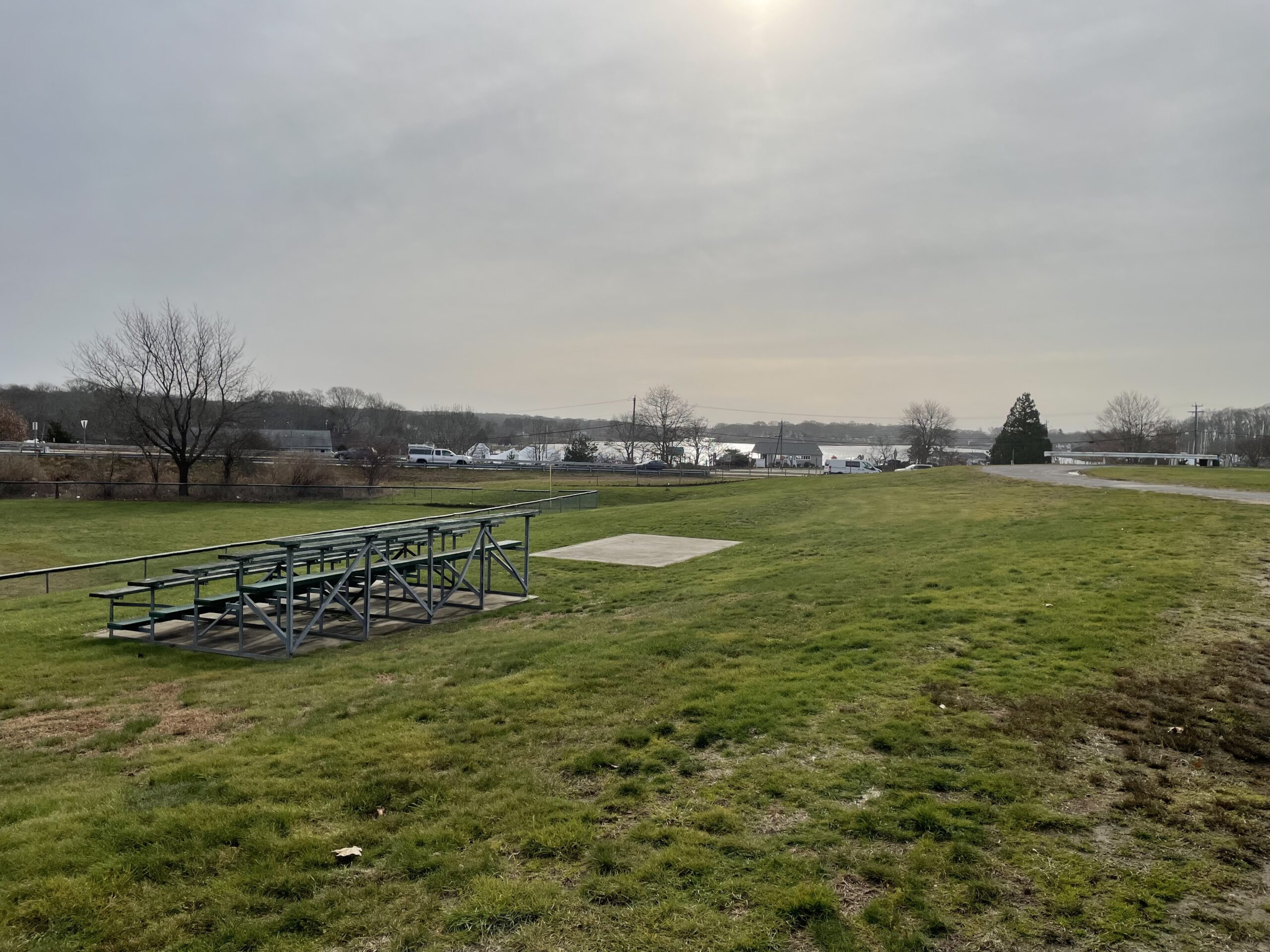
But at the Nov. 28 Town Council meeting, several members voiced their frustration that the archaeological survey report had not been released for more than a year. Manni said the report had not been released because it had been important to protect the artifacts documented in it from looting.
“I think a judgment call was made,” Manni said. “The reason they put ‘confidential’ on it is because they don’t want that to get out, and then you get groups of people trying to go and dig up what they perceive as graves or artifacts, whatever. It was done out of respect to the Narragansetts, not to hide anything. Nevertheless, when I got it, I released it.”
Council member Deborah Bergner responded, “I just feel, as a member of the council then, that we wouldn’t have necessarily spent 13 months, the hospital has spent time, they’ve been at Planning Board meetings, I’ve watched all those meetings. It’s a lot of effort. We could have probably gone in a different direction 13 months ago and not created a lot of angst in the community and then been working toward a better solution for 13 months, instead of starting now.”
Council member Patricia Alley said she had recoiled when she learned of the possibility that there were graves on the park property.
“It really turned my stomach,” she said. “My parents are buried at the Veterans’ Cemetery. I would not want them to be paved over to put in a parking lot. I feel like that is very disrespectful.”
Council Vice President Michael Marran said the discovery of Native American artifacts on the property was enough to stop the application.
“Until we have an answer on this, definitively, for me, I’m not speaking for any of my colleagues, that stops the discussion until we get the final answers on this,” he said.
At that same council meeting, during the public comment period, Narragansett Indian Tribe Elder Bella Noka said she no longer had confidence in the hospital.
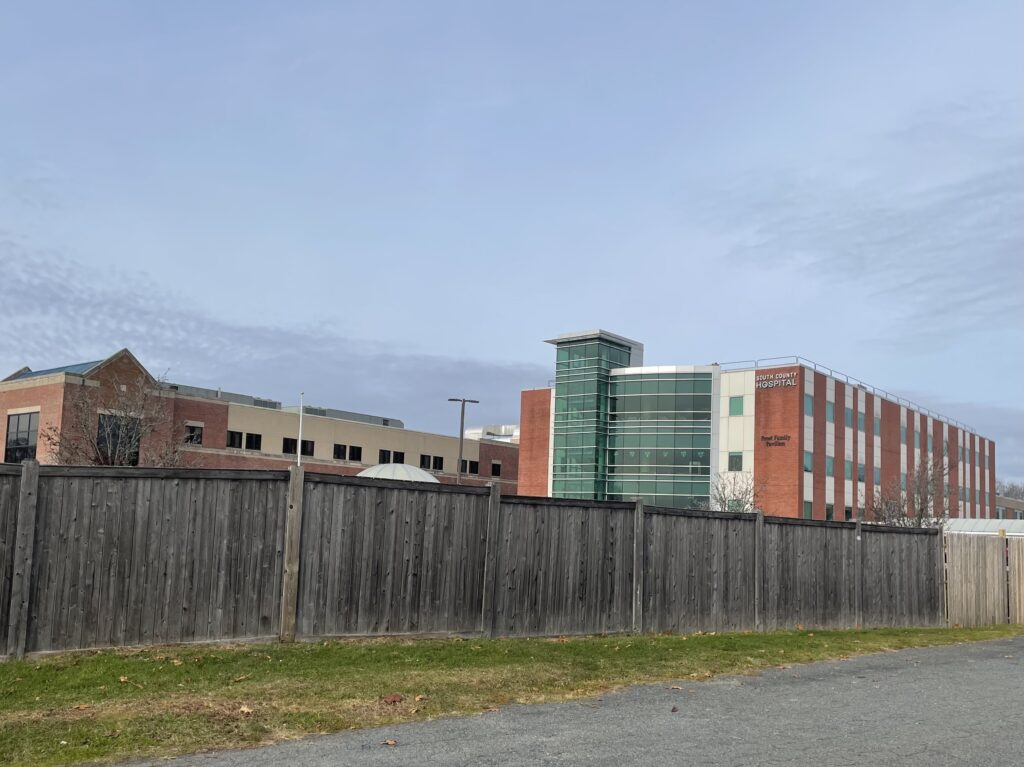
“When I walk through those doors, I’m in my most vulnerable position,” she said. “My children walk through there, my kids, my grandchildren, and now I have fear of walking through there. My life — do I want to put it in the hands of you men? I don’t think so. If you can have this conversation about paving over sensitive grounds of my ancient ones, you’ll have no trouble paving over me.”
Contacted days after the council meeting, John Brown, historic preservation officer with the Narragansett Indian Tribe, said there should have been more communication with residents who live near the park.
“You had people that lived in that area for a long time,” he said. “We’re not in a city setting, you know what I mean? It’s a tourist attraction, but it’s a historic town and the people who live there year-round are historic in nature. Their families have an interest, and that probably should have been done.”
Brown said he hoped to have additional discussions with the hospital regarding the future of the property.
“We reached out to them and I’m waiting for them to return my email,” he said.
Harper said the goal of her group remains the preservation of the park as open space.
“What do we want, as neighbors?” she said. “If it has to be given back to the Indians, I can’t speak to what the Indians want to do with this property. All I know is our original goal: preserve it as open space and a park, in perpetuity, as they agreed to do when they took money from the National Park Service. If the whole property has to be further protected from development because of the remains and cemetery status, well, even better.”

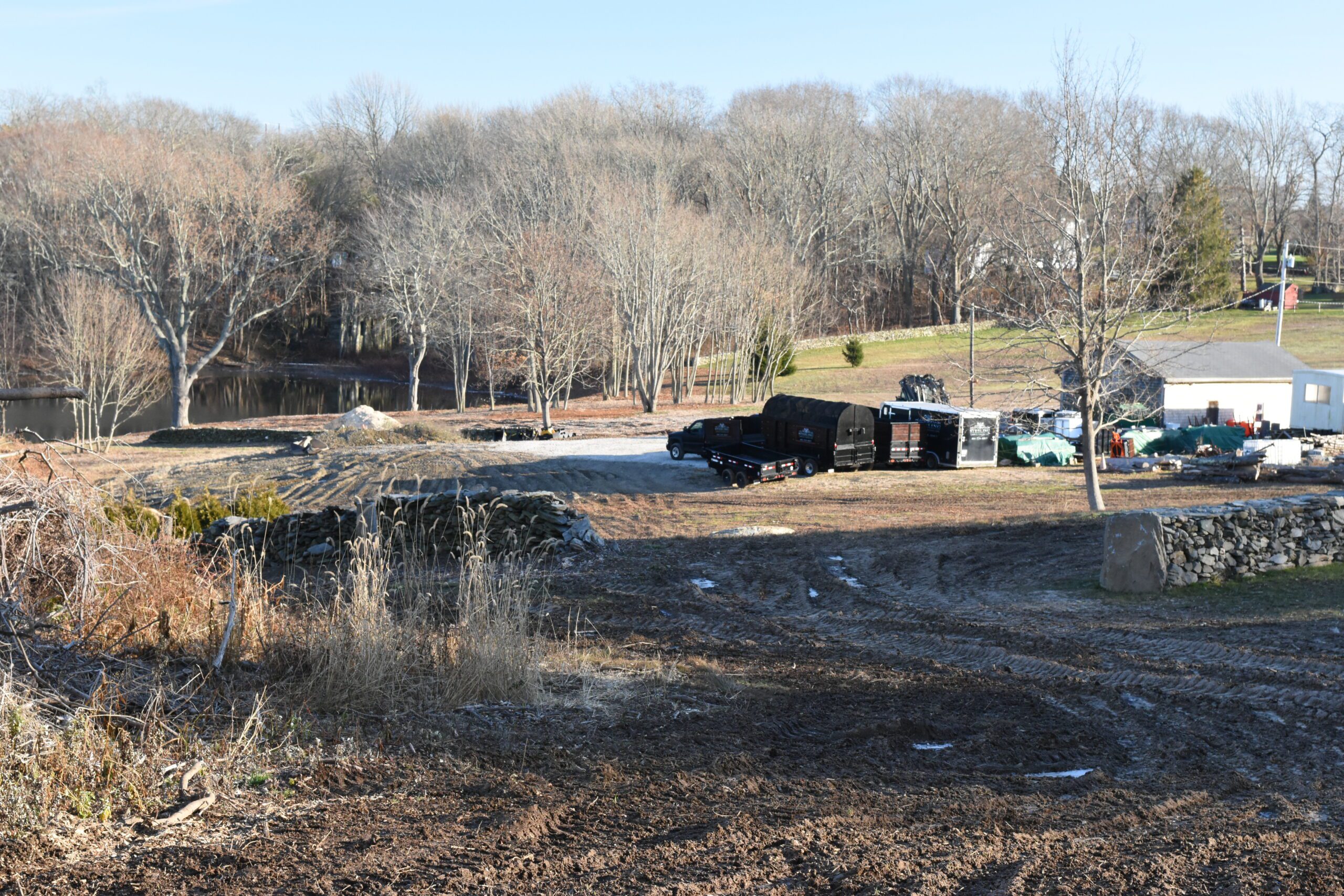
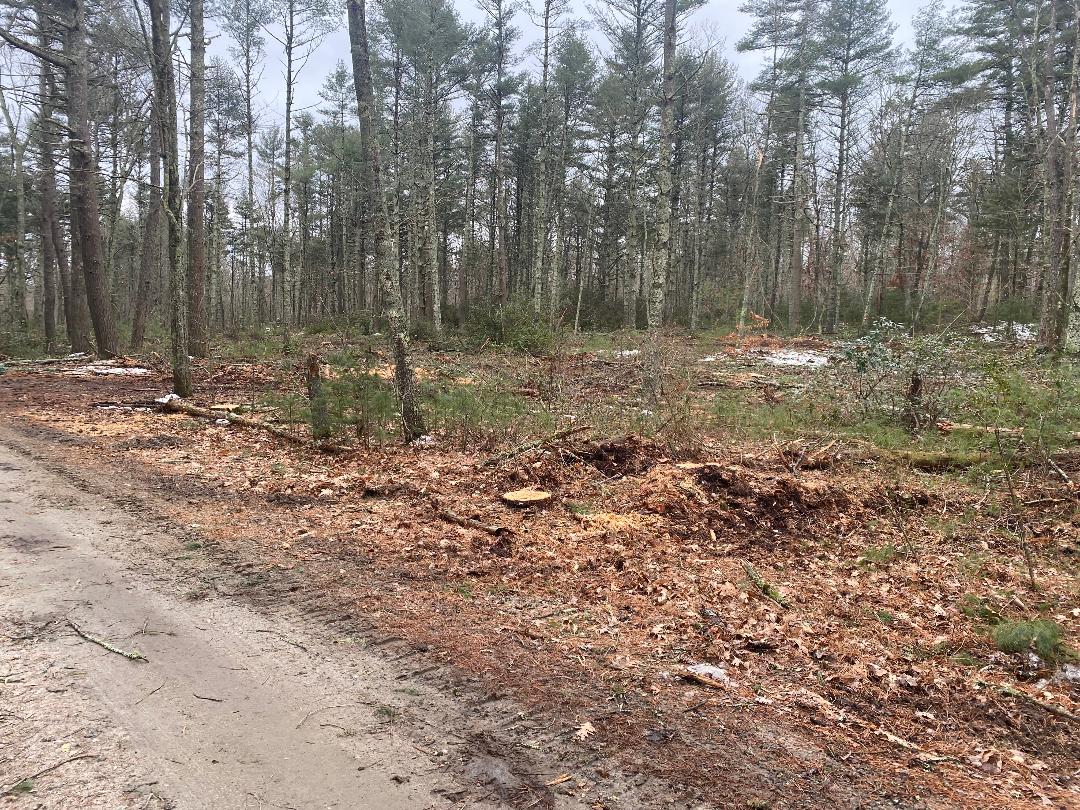
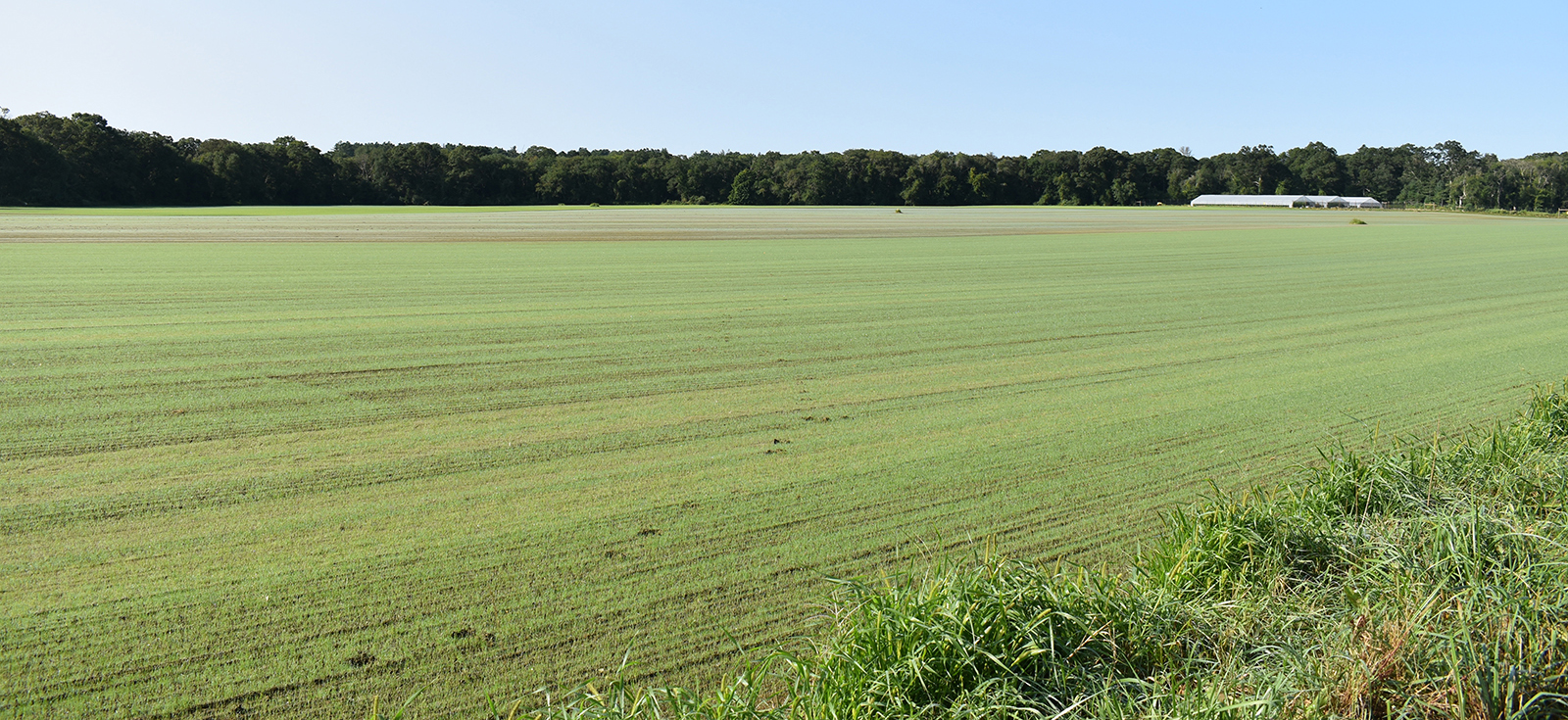
What happened to the original promises? First, what about the promise that the town use it solely as a cemetery (what happened to the 20 people buried there after the cemetery was demolished..how do you demolish a cemetery?) Second, the town received federal funds to be used to construct and maintain a park. Who decided to end this agreement? As it was suppose to be for perpetuity this never end. The town residents were not properly informed of these backdoor negotiations. In addition, the town violated this agreement back in the 80s when they sold land to the hospital. This land needs to be given back at today’s fair market value or a possible swap of the land and buildings located on Rte 1 currently being used by the town. The hospital needs to seek alternative solutions to their “master plan” including the
It is historical, our commitment to Native Americans will be ignored and/or overruled. The Narragansett tribe initially accepted the Europeans with open arms to have them not only survive, but flourish. Then only a bit later European invaders attempted to extinguish their existence.
The hospital failed to execute due diligence on there plans to acquire the “ protected land” by again ignoring the original land use and repurpose.
There is an infamous song lyric…”they paved paradise and put up a parking lot.”
Why doesn’t the hospital use the parking area they already have to build a multi-story parking garage? What’s up with covering land with asphalt? Wonderful reporting, btw.
Thanks Cynthia for the detailed coverage of this complicated situation.
The South Kingstown Town Council is scheduled to vote at their December 12, 2022 meeting to officially cancel the land swap application. If you are in the area please attend to show your support of them “doing the right thing.” Meeting starts at 7Pm at Town Hall located at 180 High St, Wakefield, RI 02879.
You can also view it via live stream at https://www.youtube.com/channel/UCOz_gL-w5KrVcyoMxojLVmw
Realistically, would anyone want their ancestors in the ground be paved over for more parking lot space? I know I wouldn’t like that…I stand firm with the Narragansetts on this topic.
My thoughts too. Build a 2 or 3 tier parking garage on the back half of the land they already have.
OR, ask the doctors that have practices in the hospital to find another location, with parking, to locate their business.
THIS IS A NO BRAINER, LEAVE OUR BURIALS ALONE & ALLOW OUR ANCESTORS TO REST IN PEACE!
The same thing is happening in Pawtucket; Morley Field, the only green space in the area, is being sold to a trucking end distribution center for a parking lot. The city claims the park they will develop 1-1/2 miles away will be just fine. It turns out, they had no right to sell a part of this lot, as it was given “in perpetuity,” as a park. I guess that’s another phrase that doesn’t mean anything any more.
Can the hospital not build a multi-story parking structure on their fairly spacious existing property? How about shuttles to a lot a little further away?
Hospitals in cities have to deal with these issues without continuously annexing adjacent land.
Whew. All these groups coming together, competing for resources. What a mess.
The elephant in the room that no one ever talks about is….overpopulation. Population Balance recently published a new abstract that is “the first of its kind that connects the dots between coercive pronatalism, population denialism, and reproductive and ecological injustice.” It outlines the pressure put upon humans to procreate and even deny population problems. These fights over land use…solar…clear cutting…logging ancient trees to sustain a local economy….all come from the same problem of overpopulation.
This is starting percolate all over the place. The protection of parks and other protected green spaces from these swaps for development is supposed to be enforced by DEM and the National Park Service. Neither is doing their job as the agencies take their orders from politicians devoted to development at all costs.
Why not build a second story on existing parking lot, & a ramp into the building on the second floor?
White man still speaks with forked tongue to my Narragansett friends.
People rise up and support the people of the Narragansett Nation.
Enough is enough these people have been lied to for over 300 years we have taken their lands from them, denied them recognition s a tribal nation, violated NY treaties that we have with them. We disturb their sacred burial grounds and don’t even have the decency to restore them.
Why because it isn’t the white mans ancestral burial grounds that are being disturbed.
I used to think that the song “They paved Paradise to put up a Parking Lot was a poignant epithet of man’s greed.
This is much worse paving a potential Native American burial ground for a parking lot?
What would you say or do if your ancestors burial grounds were about to be paved over for a parking lot.
The Narragansett people have been good.neighbors for centuries even after being treated so unjustly by the white man.
People join me in standing up with our Narragansett friends and please leave your blankets at home!
I agree with those who say the hospital should build a multi-stories parking facility on the grounds it already uses as parking lots. There’s no such thing as free parking so people should pay to park.
Jamestown is supposed to have more Native American graves than any other place in the country. Yet the town lets developers haul truckloads of dirt away and put up huge buildings without any scrutiny by the town.
This whole story speaks very poorly of the Hospital and more importantly the Town Planning Board that should have closed down the parking lot proposal the minute they knew–and should have known–of the 1976 grant under federal law. It said in perpetuity, not until the town decides differently. We lawyers know the plain meaning rule. If a federal statute and a legal grant pursuant to it have a plain meaning and that is clear here, no town official, or state for that matter, can even think of overriding it. As for the Board member who claims he doesn’t remember his own legal recusal a year before, he should look elsewhere for a position than as a government official charged with adhering to conflict of interest rules and casting votes that must uphold the public interest and the law.
any land use application for additional on-site parking, shall include alternative parking options.”
Better yet, start work on alternative transportation options.
Planning Boards need more education. The pace of development is staggering, yet, the process has remained the same. People should be vetted for this position. There has to be a better balance. We are slowly but surly shooting ourselves in the foot.